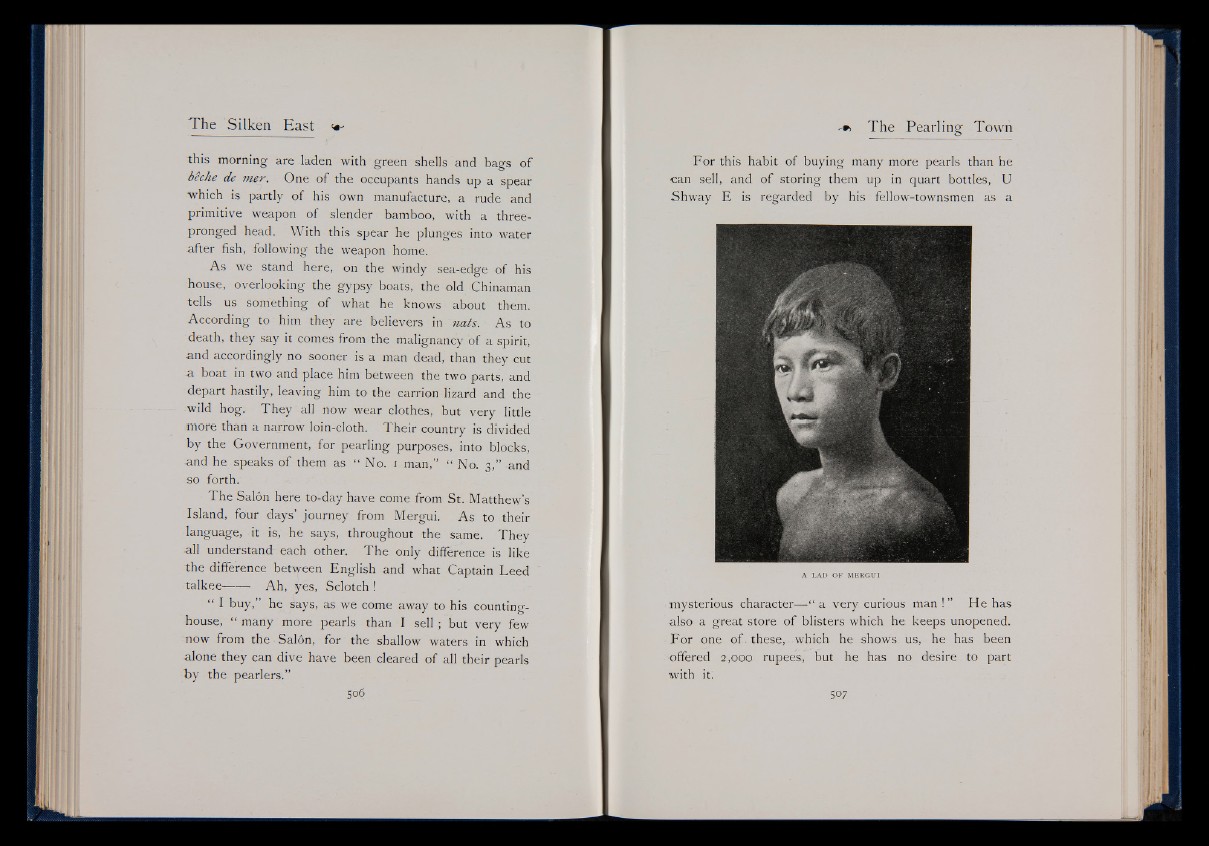
this morning are laden with green shells and bags of
biche de mer. One of the occupants hands up a spear
which is partly of his own manufacture, a rude and
primitive weapon of slender bamboo, with a threepronged
head. With this spear he plunges into water
after fish, following the weapon home.
As we stand here, on the windy sea-edge of his
house, overlooking the gypsy boats, the old Chinaman
tells us something of what he knows about them.
According to him they are believers in nats. As to
death, they say it comes from the malignancy of a spirit,
-and accordingly no sooner is a man dead, than they cut
a boat in two and place him between the two parts, and
depart hastily, leaving him to the carrion lizard and the
wild hog. They all now wear clothes, but very little
more than a narrow loin-cloth. Their country is divided
by the Government, for pearling purposes, into blocks,
-and he speaks of them as “ No. i man,” “ No. 3,” and
so forth.
The Salon here to-day have come from St. Matthew’s
Island, four days’ journey from Mergui. As to their
language, it is, he says, throughout the same. They
all understand each other. The only difference is like
the difference between English and what Captain Leed
talkee Ah, yes, Sclotch !
“ I buy, he says, as we come away to his counting-
house, “ many more pearls than I sell ; but very few
now from the Salon, for the shallow waters in which
alone they can dive have been cleared of all their pearls
By the pearlers.”
For this habit of buying many more pearls than he
can sell, and of storing them up in quart bottles, U
Shway E is regarded by his fellow-townsmen as a
A LAD OF MERGUI
mysterious character—“ a very curious man ! ” He has
also a great store of blisters which he keeps unopened.
For one o f . these, which he shows us|| he has been
offered 2,000 rupees, but he has no desire to part
with it.